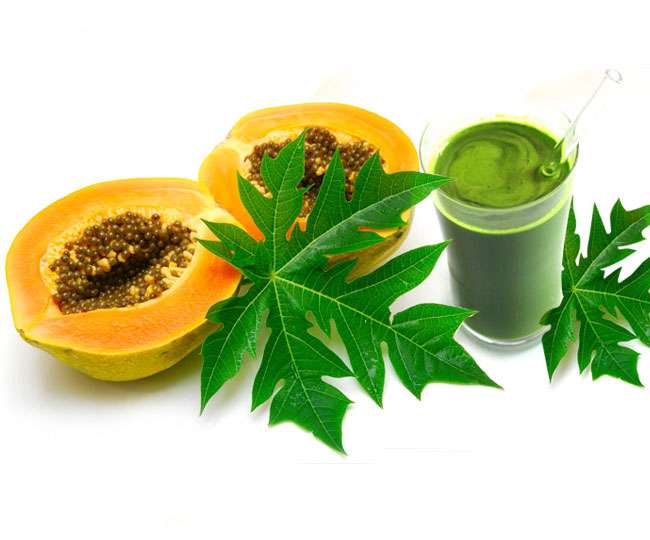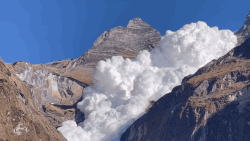Fact Check

As an outbreak of dengue grips Nepal, netizens are advising patients to take papaya leaf juice. Subsequently, the demand for the largely unheard of juice – which is simply unavailable in Nepal’s markets - has gone up.
Social media platforms like Facebook and Twitter are flooded with links of articles like this and this, describing how papaya leaf juice can help fight dengue, which is caused by the Aedes aegypti mosquito bite.
Consider it. Sumi Shakya, a teacher currently working at Laboratory Higher Secondary School, recently tested positive for dengue fever. Now her Facebook post is filled with health tips and advice. One of her friends suggested she drink papaya leaf juice.
It’s just an example. Nepali social media users have been claiming that consumption of papaya leaf juice can help increase “platelets and boost immunity”.
Fact-Check/Verification
NepalMinute.com has fact-checked this claim. In the process, we studied articles published by trustworthy medical websites and spoke to various medical and Ayurvedic doctors.
According to the World Health Organisation, Dengue is a viral infection transmitted to humans through the bite of infected mosquitoes Aedes aegypti mosquitoes. Also it is transmitted, albeit to to a lesser extent, by Aedes Albopictus mosquitoes.
These mosquitoes breed and thrive in water, including rainwater, collected in the tyres, bottles, cups, flower pot trays or open cans and jars.
In Nepal, the first case of dengue was reported in 2004. In 2019, there was an outbreak in Nepal with a total of 17,992 reported dengue cases from 68 districts, as per the Epidemiology and Disease Control Division.
As of September 7, 2022, a total of 6,707 dengue cases have been recorded in the country, with Bagmati province reporting the highest number – 5,066 - followed by Lumbini province, where 933 people are suffering.

As dengue cases rise, suggestions to drink papaya leaf juice are widely circulating on social media. But Ayurvedic doctors warn that consumption of the juice can be counterproductive. “As claimed. the juice doesn’t have many health benefits,” said Ayurvedic Dr Prerok Regmi, also a research officer at Nepal Health Research Council.
Dr Pradip KC, director at Nardevi Ayurvedic Hospital, agreed: “It is true that the papaya leaves can help increase platelets but it should only be consumed when prescribed by the doctor." Experts say papaya plant contains papaya latex, which contains an enzyme called papain which increases risks of gastritis.
But KC warned: “Intake of papain could damage oesophagus, the tube through which food passes from the mouth to the stomach. The enzyme can also cause severe irritation and allergic reactions in people.”
Medical doctors too have cautioned papaya-leaf-seekers.
Dr Bimal Chalise, Chief Consultant Physician at Sukraraj Tropical and Infectious Disease Hospital said: “There is no need of taking papaya leaf juice or any other herbs or medicines to increase platelets decreased because of dengue. The platelets will start increasing after one recovers from dengue fever."
Prevention
The best way to prevent dengue is by staying away from mosquitoes. That would be possibly only after destroying the breeding habitats of mosquitoes, say experts. They advise checking mosquito-breeding sites in containers, flower pots and other areas in our homes.
Dengue patients visiting hospitals have been found suffering from fever, headache, nausea, vomiting and body ache.
Medical experts say there is no specific treatment for dengue fever. Patients should take rest, stay hydrated and seek medical advice and take medicine as prescribed by doctors, says WHO.
Doctors warn that haphazard consumption of papaya leaves and juice can lead to vomiting, stomach ache and cramps because of the enzyme. Papaya leaf juice tastes bitter so people are likely to vomit.
Side effects
A research paper by Indian researcher and winner of World Championship-2018 in Neurodegenerative Disorders (Pharmacognosy) Tatyasaheb Patil which was published in in the International Journal of Pharmacognosy and Phytochemical Research offers some insights.
It states: “Side effects like stomach trouble, loosening stool, increase bowel movements and abortion may result from consumption of the dried papaya leaves.
“It has also been observed that lower doses do not cause gastric irritation, but higher doses produce gastric effects – abdominal pain, vomiting and burning sensation.”
According to drugs.com, a highly credible medicine information website, papaya may cause severe allergic reactions: “Latex can be a severe irritant. Papaya leaves at high doses may cause stomach irritation."
Nepali Ayurvedic doctor Pradip KC agreed: “Intake of a high amount of the leaves and juices leads to increased bowel movement, loose motions. It might actually deteriorate the health condition of a dengue patient.”
Added Dr Prabhat Adhikari, an infectious disease expert: "We need in-depth research to find whether papaya leaves are beneficial for health or not.”
Conclusion
Although more and more dengue fever patients seem to be consuming papaya leaves or leaf juice, there is no scientific evidence to support claims that papaya leaf juice cures dengue fever. The claims are false.
Sources –
- Papaya leaves in dengue fever: Is there scientific evidence?
- Papaya side effects
- Papaya may cause severe allergic reactions






